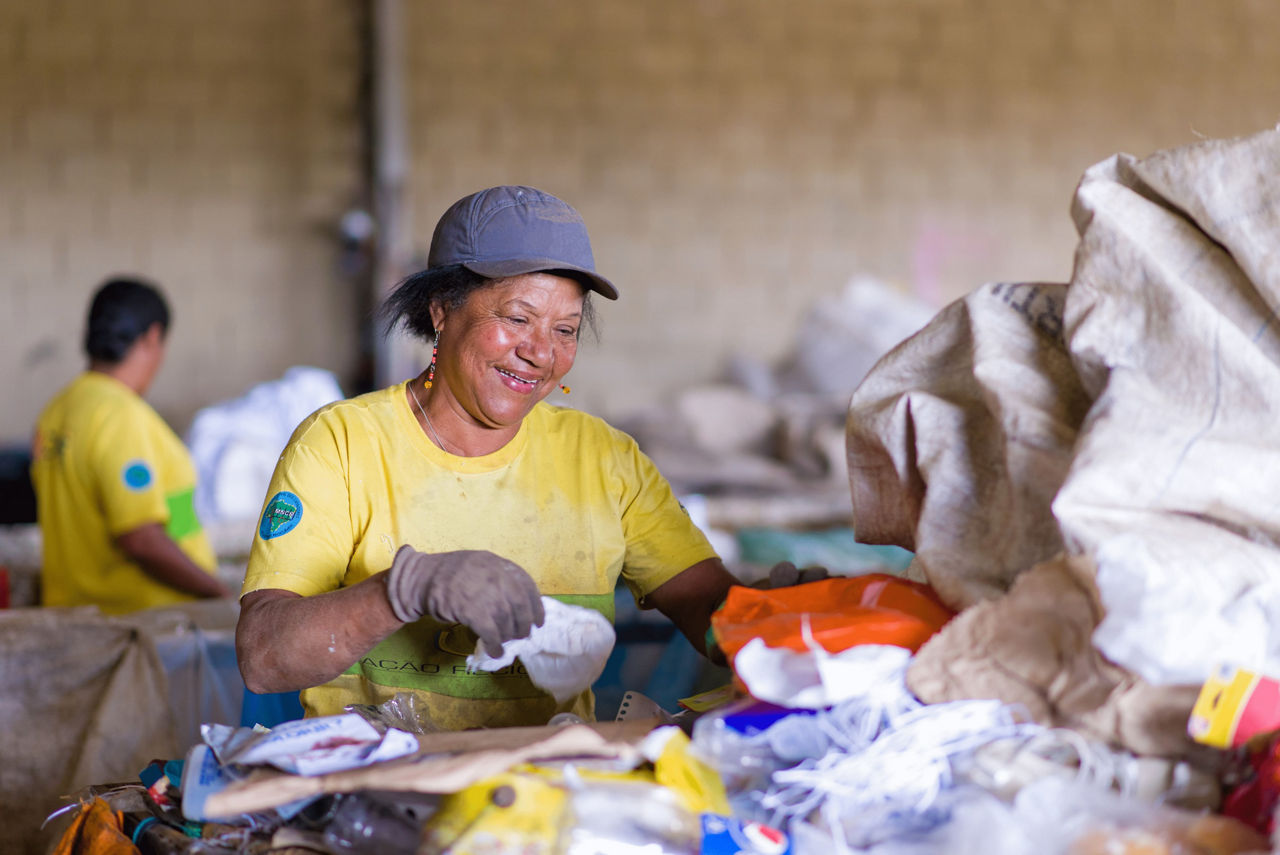Every year, 16 million people make a living by sifting through garbage to sort metals, plastics, carboards and other recyclables. A study looked at five cities in developing countries and found that for 65% of waste pickers, this job represents their main source of household income. These workers are key actors in the circular economy, and yet waste pickers often work in underpaid, informal and unsafe conditions. Given the key role waste pickers play in the recycling supply chain, Danone is focusing its efforts on helping them to move into the formal economy, where their basic rights can be protected.

Countries that lack formal waste disposal and recycling systems often rely on waste pickers (a term that was adopted at a world conference in Bogota, Colombia in 2008) to form a key link in the economy: more than 3/4 of waste pickers sell to formal businesses, while a quarter supply materials to the general public. Their efforts are critical in supporting the recycling stream, recovering roughly 20% of all waste material in cities in developing countries, that would otherwise end up in landfills.
Unfortunately, working outside of the formal economy means that many of the waste pickers lack social status and labor protections. In countries like Argentina, Brazil, Mexico, Indonesia, and Ghana, the Danone Ecosystem Fund is assisting the creation and development of worker cooperatives that can oversee the process of collecting, sorting, and selling plastics directly to recycling plants.
Supporting waste pickers in all corners of the world
“The cooperatives allow waste pickers to receive training and to secure fair wages, thereby improving working and living conditions,” said Danone’s Chairman and CEO, Emmanuel Faber. “We consider that defending human dignity at work and fighting against forced labor is fundamental to our commitment to do business in a sustainable manner, while protecting both the health of people and that of our planet.”
In Ghana, the 'Pick it!' project aims to improve both recycling rates and the living conditions of waste pickers. Fan Milk, Danone’s subsidiary in Ghana, co-designed Pick-it! with the local and national government, the MIT’s D-Lab, Environment 360° and WIEGO. Pick-it! aims to develop an inclusive recycling system that improves waste pickers’ working conditions while at the same time increases the recycling rates of plastics and reduces the risks of plastic pollution and clogging. So far, it has empowered 242 waste pickers that are working in the newly-created sorting center.
In Brazil, a Danone Ecosystem Fund supported project called 'Novo Ciclo' seeks to professionalize waste pickers through the creation of waste management centers and the consolidation of cooperatives in different regions of the country. The project offers management training to empower waste pickers to run their own business independently.
As well as consolidating existing jobs, Novo Ciclo creates new ones in a safer working environment. It raises awareness about both the importance of waste management and conditions for waste pickers. At the same time, Danone Brazil develops its rPET and second life polystyrene industry – the material from which yogurt cups are made – through the development of sustainable waste management practices.
Likewise, Indonesia is facing severe environmental threats with plastic leaking into the environment, so the government is putting greater responsibility on companies to collect their waste. Danone AQUA has taken action last summer with the launch of its Plastic Pledge – a series of commitments aimed at fostering a new culture of recycling and environmental responsibility in Indonesia, with concrete actions taken for plastic waste collection and reuse. The Danone Ecosystem Fund and its local partners are key in helping drive this movement as they aim to organize recycling circuits and empowering waste pickers. Through the fund, recycling units are also built and managed by waste pickers. The project is simultaneously serving the circular economy and promoting sustainable development for workers, granting them access to health services and better labor conditions.
